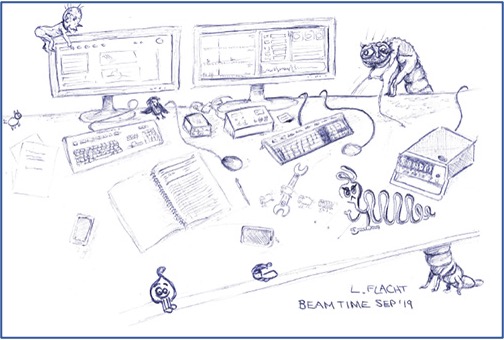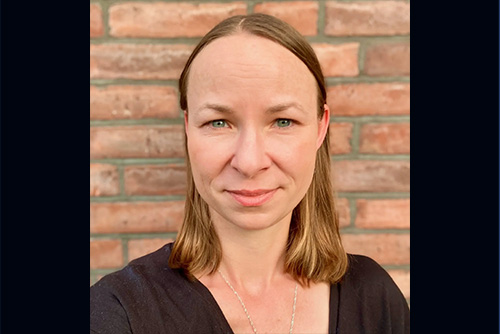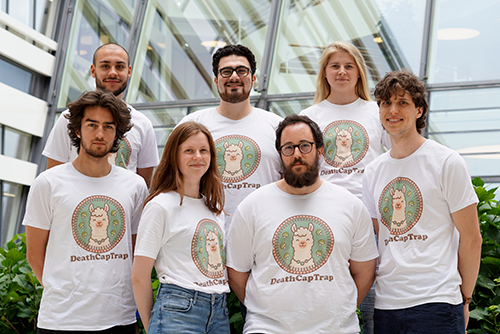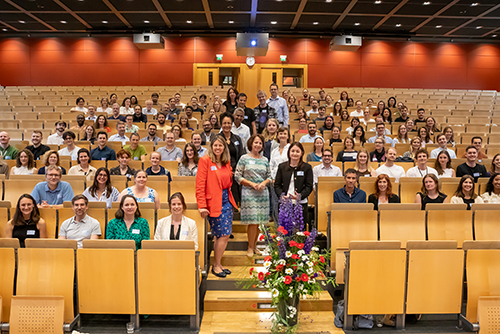New Research Projects
Two CSSB group leaders, Tim Gilberger and Michael Kolbe, recently received grant monies from the Joachim Herz Stiftung for interdisciplinary research projects. The projects are part of a programme funded by the Joachim Herz Stiftung that seeks to support both the promotion of young scientists and the provision of incentives to implement systems biology research at CSSB. One main focus of this programme is to build up expertise in computational modelling approaches at CSSB and to combine them with experimental setups. “We are happy to support Tim Gilberger and Michael Kolbe’s research endeavours and to strengthen interdisciplinary systems biology research within CSSB.” explains Petra Herz, Chairwoman of the Executive Board of the Joachim Herz Stiftung.
Mapping Red Blood Cell Invasion
Every 60 seconds a child dies of malaria, a mosquito born infectious disease. In spite of recent advances in molecular medicine, a vaccine is not available and resistance to antimalarial drugs is widespread. CSSB group leader Tim Gilberger focuses his research efforts on identifying and interfering with the weak spots of this deadly pathogen.
Using systems biology approaches in collaboration with Andrew Emili (University of Toronto) and John Parkinson (Sick Kids Research Institute), Gilberger plans to fine-map the protein interactions taking place in the “invadome”, the protein network responsible for red blood cell invasion. Once a map has been generated, the Gilberger laboratory will use cell biology methods to validate this updated network. This approach will be complimented by CSSB Group leader Christian Löw who then uses x-ray crystallography to obtain high resolution insights into individual proteins powering and regulating host cell invasion. Determining the structure of specific proteins may enable the identification of proteins or protein sites which can be targeted by small compounds to inhibit this crucial step in the infection cycle. “This research project integrates the expertise of four different laboratories. The collaboration will not only enable each laboratory to venture into new research avenues with synergistic effects for this research project but will also help to implement systems and computational biology approaches within the CSSB,” explains Gilberger.
Understanding the structure and function of the Type III secretion system of the human pathogen, Shigella flexneri.
Gram-negative bacteria, including Shigella, Salmonella, and Yersinia species, cause millions of deaths every year. Like malaria, there are no vaccines available for most infections caused by Gram-negative bacteria and antibiotic resistance is increasing. These bacteria have a Type III secretion system, which is responsible for initiating the infection process in human host cells. CSSB group leader Michael Kolbe’s research focuses on understanding the principles of protein export through the needle complex of the Type III secretion system.
Kolbe’s project will apply microbiological and structural biology techniques in combination with computational analysis to identify novel regulatory components of the Type III secretion needle complex. With this interdisciplinary approach, Kolbe’s laboratory will further address the role of the putative regulators in the dynamic process of protein transport through the Type III secretion system. Kolbe will work in close collaboration with Charlotte Uetrecht (Heinrich Pette Institute and European XFEL GmbH), who will use native mass spectrometry, a powerful structural biology tool for studying large membrane protein complexes, to determine the molecular composition of the transport system. The data generated by native mass spectrometry will then be used by Edda Klipp (HU-Berlin) to create detailed models of the needle complexes’ assembly pathway. The study aims to shed light on how the Type III secretion system translocates effector proteins across the cell envelopes of Gram-negative pathogens into host cells. “Discovery of novel regulator components would help enable the design of new therapeutic drugs to control Gram-negative bacterial infections,” explains Kolbe.
Exciting Interdisciplinary Research
Research for both projects is set to begin at the end of this year and will continue into 2018. To carry out their research projects both Gilberger and Kolbe will be hiring PhD students who will be integrated into the interdisciplinary environment at CSSB. “We are extremely excited and thankful that the Joachim Herz Stiftung will be sponsoring two CSSB research projects. These projects are a prime example of the collaborative and interdisciplinary research endeavors that are beginning to unfold here at CSSB,” explains Matthias Wilmanns, CSSB Research Director. “I hope this will be a first step towards internationally recognized flagship projects from the CSSB”



